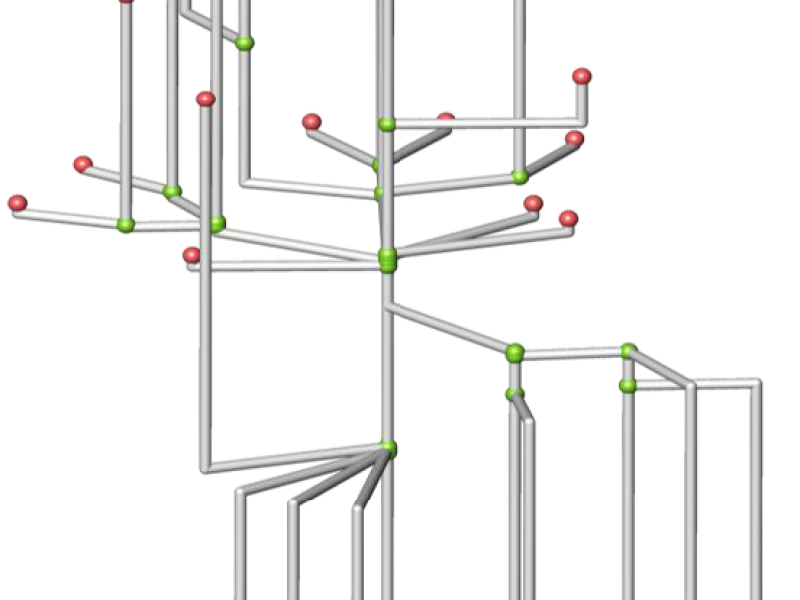Molecular processes such as protein folding or ligand-receptor-binding can be understood by analyzing the free energy landscape. Those processes are often metastable, i.e. the molecular systems remain in basins around local minima of the free energy landscape, and in rare cases undergo gauche-transitions between metastable states by passing saddle-points of this landscape. By discretizing the configuration space, this can be modeled as a discrete Markov process. One way to compute the transition rates between conformations of a molecular system is by utilizing Transition Path Theory and the concept of committor functions. A fundamental problem from the computational point of view is that many time-scales are involved, ranging from 10^(-14) sec for the fastest motion to 10^(-6) sec or more for conformation changes that cause biological effects.
The goal of this project is to provide a better understanding of such transitions in configuration space on various time-scales by analyzing characteristic scalar functions topologically and geometrically. We are developing suitable visualization and interaction techniques to support our analysis. For example, we are analyzing a transition rate indicator function by computing and visualizing its Reeb graph together with the sets of molecular states corresponding to maxima of the transition rate indicator function. A particular challenge is the high dimensionality of the domain which does not allow for a straightforward visualization of the function.
The computational topology approach to the analysis of the transition rate indicator functions for a molecular system allows to explore different time-scales of the system by utilizing coarser or finer topological partitioning of the function. A specific goal is the development of tools for analyzing the hierarchy of these partitionings. This approach tackles the analysis of a complex and sparse dataset from a different angle than the well-known spectral analysis of Markov State Models.
